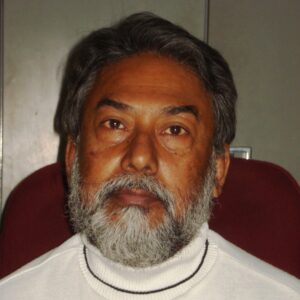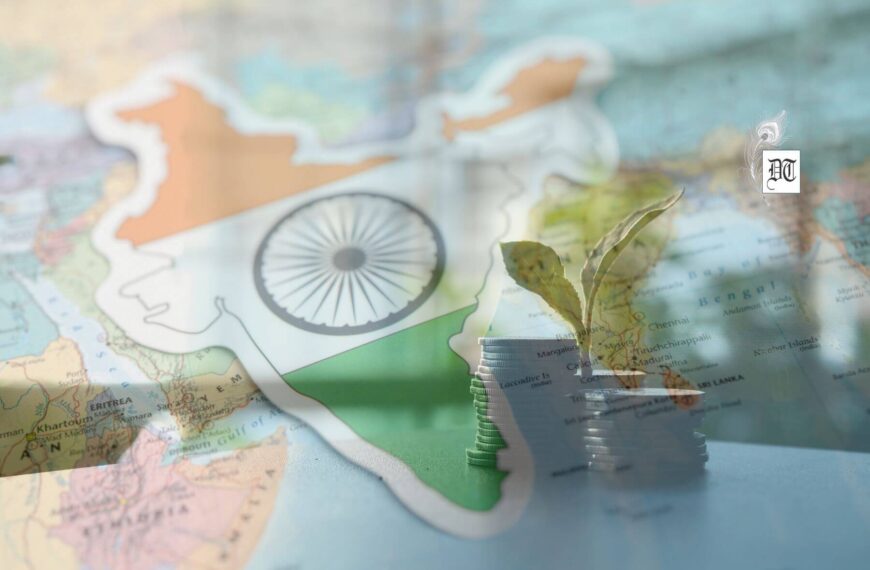Real India cannot be found in history books. Bhaskar, travelling through various parts of the country, in about five decades, found huge gaps in the understanding about the country, among different groups of people, separated by geography. Their lives belong to different epochs or centuries. In fact, money and advancement in technology do not go hand in hand with the homogenisation of the people in India. In another instance, he is saddened by the perception of writing among the academics in a social science institute, at Allahabad. For them, writing is nothing more than an exercise in Swanta Sukhaya! Last but not the least, he turns his attention to the Lakshman Rekha issue that rocked the nation, recently. Here are his observations, as a social scientist, in the weekly column, exclusively for Different Truths.
My first request to you is not to misread me though it might be difficult for many. I failed to learn a lot from history and so I am not competent to describe different eras or epoch. Whatever little learning that I have had was through my travels around the nook and corner of India, during past five decades or so. Through my travels and observations I found that different parts of India seem to be living in different centuries.
During my visit to Pratapgarh Fort, 1000ft above Mahabaleswar, in Maharashtra, in 1980, I met some primitive-looking people who had no idea that India attained independence. In 2007, at Munsiary, in Pithoragarh district, in Uttrakhand, I met a caveman-type person living alone on the top of a hill. I also found a group of people on the border of UP-Nepal surviving without any identity or social security cards (like ration cards, etc) to establish their identity. I found people in the north-east corner of India, who during mid-1960s, appeared as cannibals. I found people, who not only talked in different languages but think about themselves as Mughal emperors of the 16th century, and so on. All these people are free citizens of India. Some are pastoralists, some are hiding in forests or trying to live collectively peacefully, while some are lead highly elite lives in metropolitan cities of India.
Some experts say that technology and money have homogenised people by the multinationals, the  Cocacolisation or the McDonalidisation. I not only differ but with can say with confidence that most people in India are far from the development of scientific outlook that is derived from advancement in technology. This includes the illiterates using mobile phones, who seem more confident than educated persons. Money seems to have created disaster by allowing legal entry of persons in expensive compartments in trains, who often reveal their lack of culture by wiping their dirty hands on the curtains in the compartment, or place their shoes on their berths before leaving the compartment.
Cocacolisation or the McDonalidisation. I not only differ but with can say with confidence that most people in India are far from the development of scientific outlook that is derived from advancement in technology. This includes the illiterates using mobile phones, who seem more confident than educated persons. Money seems to have created disaster by allowing legal entry of persons in expensive compartments in trains, who often reveal their lack of culture by wiping their dirty hands on the curtains in the compartment, or place their shoes on their berths before leaving the compartment.
My understanding is that having money and advancement in technology do not go hand in hand with the homogenisation of the people in India.
Swanta Sukhaya!
Somewhere I read there are two types of philosophers – one who does not write for the world was not going to change following that, the other writing, and perhaps compensating the vacuum created for the first one, knowing that the world is not going to change following what they write. My teen-age daughter asked me, if we do not learn anything from history, then why do we learn history (from books)? Rather than going into what I tried to respond, let me narrate the stories that I encountered long back.
 While head-on from the opposite sides of the rectangular table of an academic administrator in a reputed social science research institute at Allahabad, more than a decade back, I faced the same question but in my understanding in a manufactured hostile environment – I had to listen that those who write, write for themselves (Swanta Sukhaya) or to make others jealous – I was so shocked for he happened to be a renowned psychologist! I did not try to counter him for he had by then crossed three quarters of his expected life-span by Indian standard, and in India, age matters!
While head-on from the opposite sides of the rectangular table of an academic administrator in a reputed social science research institute at Allahabad, more than a decade back, I faced the same question but in my understanding in a manufactured hostile environment – I had to listen that those who write, write for themselves (Swanta Sukhaya) or to make others jealous – I was so shocked for he happened to be a renowned psychologist! I did not try to counter him for he had by then crossed three quarters of his expected life-span by Indian standard, and in India, age matters!
Whether or not one gets immediate answers or whether or not the world is changing immediately visibly, in my understanding, one has to question or one has the responsibility to write, subject to multiple constraints and willingness of the person. It is more than or beyond Swanta Sukhaya and surely not to make others jealous. The space for writing is global. The most important point I missed, I found a few teachers in Economics Department ofCalcutta University, who used to teach by unfathomable quality producing scholars, who write but they themselves did not write but also did not give the sermon like Swanta Sukhaya.
Laxman Rekha
I was in utter shock and awe for the recently reported news (if not a costly humour/rumour) that the CJI has been asked by the Attorney General to limit him within the Laxman Rekha. What was the mistake of the CJI? He merely reiterated his demand for more judges for the country’s judiciary. Personally, I find the present CJI a romantic at heart. How else does one explain his weeping in public space for the cause of the judiciary!
But coming to the core point, what is this all about? Why glorify Laxman Rekha? Laxman was not that  glorifiable, as secretly told by Urmila in Ramayana. Laxman did not even consult his Patni (wife), while leaving for exile with the great Rama and Sita. And Urmila did not force Laxman to marry her. Also, Sita had several compulsions in the jungle (Vanavas or exile). But, we are neither in a jungle nor in jungle raj. Demanding for more judges for the cause of the nation, in my limited understanding, cannot be a cause of anxiety, rather absence of that demand could be a cause of nation’s anxiety.
glorifiable, as secretly told by Urmila in Ramayana. Laxman did not even consult his Patni (wife), while leaving for exile with the great Rama and Sita. And Urmila did not force Laxman to marry her. Also, Sita had several compulsions in the jungle (Vanavas or exile). But, we are neither in a jungle nor in jungle raj. Demanding for more judges for the cause of the nation, in my limited understanding, cannot be a cause of anxiety, rather absence of that demand could be a cause of nation’s anxiety.
I am also at a loss about the violation of the ‘Rekha’ of the Constitution – and if Constitution of India is ‘Laxman’, then I will humbly accept the Laxman Rekha argument. As a poor learner in social sciences for the last five decades, I find Laxman Rekha nothing to be proud of. At least, not from poor Urmila’s point of view!
©Bhaskar Majumder
Photo from the internet.




 By
By

 By
By
 By
By